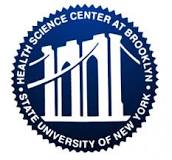Everolimus and Letrozole or Hormonal Therapy to Treat Endometrial Cancer
| Status: | Active, not recruiting |
|---|---|
| Healthy: | No |
| Age Range: | 18 - Any |
| Updated: | 9/20/2018 |
| Start Date: | February 2015 |
A Randomized Phase II Trial of Everolimus and Letrozole or Hormonal Therapy (Tamoxifen/Medroxyprogesterone Acetate) in Women With Advanced, Recurrent, or Persistent Endometria Carcinoma
The main purpose of this study is to evaluate the effectiveness of the combination of the
drugs Everolimus and Letrozole compared to Tamoxifen and Medroxyprogesterone acetate in
treating endometrial cancer and to determine the types and severity of side effects caused by
treatment with these drug combinations.
drugs Everolimus and Letrozole compared to Tamoxifen and Medroxyprogesterone acetate in
treating endometrial cancer and to determine the types and severity of side effects caused by
treatment with these drug combinations.
Inclusion Criteria:
- Patients must have histologically confirmed advanced (FIGO Stage III or IV),
persistent, or recurrent endometrial carcinoma, which is not likely to be curable by
surgery or radiotherapy. Histologic documentation of the recurrence is not required.
- All patients must have measurable disease. Measurable disease is defined by RECIST
version 1.1). Measurable disease is defined as at least one lesion that can be
accurately measured in at least one dimension (longest diameter to be recorded). Each
lesion must be greater than or equal to 10 mm when measured by CT, MRI or caliper
measurement by clinical exam; or greater than or equal to 20 mm when measured by chest
x-ray. Lymph nodes must be greater than or equal to 15 mm in short axis when measured
by CT or MRI (See section 8).
- Patients must have at least one "target lesion" to be used to assess response on this
protocol as defined by RECIST 1.1 (Section 8.1). Tumors within a previously irradiated
field will be designated as "non-target" lesions unless progression is documented or a
biopsy is obtained to confirm persistence at least 90 days following completion of
radiation therapy.
- Prior chemoradiotherapy for a pelvic recurrence is permitted. Prior chemotherapy in
the adjuvant setting for Stage I, II or III disease is permitted.
Note: No prior chemotherapy in the setting of Stage IV disease is permitted unless the
patient was without evidence of disease at the completion of chemotherapy and had at least
six months of progression-free survival since the completion of chemotherapy.
Regardless of circumstances, no more than one prior chemotherapy regimen (including
chemo-radiotherapy) is permitted.
- Patient must be able to take p.o. medications.
- Performance status must be 0-1.
- Patients must have adequate organ and marrow function as defined below:
NOTE: Institutional/laboratory upper limit of normal = ULN Institutional/laboratory lower
limit of normal = LLN
- Bone marrow function:
- Absolute neutrophil count (ANC) greater than or equal to 1,500/mcl
- Platelets greater than or equal to 100,000 cells/mcl
- Hemoglobin greater than or equal to 9 g/dL
- Coagulation
• INR less than or equal to 1.5 x ULN (or in range INR, usually between 2 and 3, if a
patient is on a stable dose of therapeutic warfarin).
- Renal function:
• Creatinine less than or equal to 1.5 x ULN
- Hepatic function:
- Bilirubin less than or equal to 1.5 x ULN
- ALT and AST less than or equal to 3 x ULN
- Alkaline phosphatase less than or equal to 2.5 x ULN
- Albumin greater than or equal to 2.8 g/dL
- Lipid panel:
- Fasting serum cholesterol less than or equal to 300 mg/dL
- Fasting triglycerides less than or equal to 300 mg/
- At least 4 weeks must have elapsed since the patient underwent any major surgery
(e.g., major: hysterectomy, resection of a lung nodule; minor: central venous access
catheter placement).
- At least 4 weeks must have elapsed since the patient received any radiation therapy.
- Patients who have met the pre-entry requirements specified in Section 7.0
- Patients must have signed an approved informed consent and authorization permitting
release of personal health information.
- All patients must be at least 18 years of age
- Patients of childbearing potential must have a negative serum pregnancy test prior to
the study entry and be practicing a highly effective form of contraception.
During the study treatment and for 8 weeks after stopping the treatment. Highly effective
contraception methods include combination of any two of the following:
- Use of oral, injected or implanted hormonal methods of contraception or;
- Placement of an intrauterine device (IUD) or intrauterine system (IUS);
- Barrier methods of contraception: condom or occlusive cap (diaphragm or cervical/vault
caps) with spermicidal foam/gel/film/cream/ vaginal suppository;
- Total abstinence or;
- Male/female sterilization. Women are considered post-menopausal and not of
child-bearing potential if they have had 12 months of natural (spontaneous) amenorrhea
with an appropriate clinical profile (e.g. age appropriate, history of vasomotor
symptoms) or have had surgical bilateral oophorectomy (with or without hysterectomy)
or tubal ligation at least six weeks prior to randomization. In the case of
oophorectomy alone, only when the reproductive status of the woman has been confirmed
by follow up hormone level assessment is she considered not of child-bearing
potential.
Exclusion Criteria:
- Patients who have previously received everolimus, any another mTOR inhibitor or any
agent targeting the PI3K/AKT/mTOR pathway.
- Known intolerance or hypersensitivity to Everolimus or other rapamycin analogs (e.g.
sirolimus, temsirolimus)
- Patients who have previously received hormonal therapy for endometrial cancer.
- Patients with concomitant invasive malignancy or a history of other invasive
malignancies, with the exception of non-melanoma skin cancer, are excluded if there is
any evidence of other malignancy being present within the past five years. Patients
are also excluded if their previous cancer treatment contraindicates this protocol.
- Patients receiving chronic treatment with systemic steroids or another
immunosuppressive agent.
- Patients with active or uncontrolled systemic infection.
- Uncontrolled diabetes mellitus as defined by HbA1c >8% despite adequate therapy.
Patients with a known history of impaired fasting glucose or diabetes mellitus (DM)
may be included, however blood glucose and anti-diabetic treatment must be monitored
closely throughout the trial and adjusted as necessary.
- Known severely impaired lung function, including:
• CTCAE grade 2 (or greater) hypoxia (decreased oxygen saturation with exercise [e.g.,
pulse oximeter <88%]; intermittent supplemental oxygen)
- Patients with a known history of cardiac disease. This includes:
- Uncontrolled hypertension, defined as systolic greater than 150 mm Hg or diastolic
greater than 90 mm Hg despite antihypertensive medications.
- Myocardial infarction or unstable angina within 6 months prior to registration.
- New York Heart Association (NYHA) Class II or greater congestive heart failure.
- History of serious ventricular arrhythmia (i.e., ventricular tachycardia or
ventricular fibrillation) or serious cardiac arrhythmia requiring medication. This
does not include asymptomatic atrial fibrillation with controlled ventricular rate.
- Cerebrovascular accident (CVA, stroke), transient ischemic attack (TIA) within 6
months prior to the first date of study therapy.
- Patients who are pregnant or breast-feeding.
- Patients with known central nervous system metastases.
- Patients with known human immunodeficiency virus (HIV) infection.
- Patients with an impairment of gastrointestinal function or gastrointestinal disease
that may significantly alter the absorption of everolimus (e.g., ulcerative disease;
uncontrolled nausea, vomiting and/or diarrhea; malabsorption syndrome; clinical signs
and symptoms of gastrointestinal obstruction; and/or patients who require parenteral
hydration and/or nutrition).
- Patients who plan to receive live attenuated vaccines within 1 week of start of
everolimus and during the study. Patient should also avoid close contact with others
who have received live attenuated vaccines. Examples of live attenuated vaccines
include intranasal influenza, measles, mumps, rubella, oral polio, BCG, yellow fever,
varicella and TY21a typhoid vaccines.
- Patients with active bleeding or pathologic conditions that carry high risk of
bleeding, such as known bleeding disorder or coagulopathy.
- Patients who are currently part of or have participated in any clinical investigation
with an investigational drug within 30 days prior to dosing.
- Patients must be able to follow concomitant medication restrictions:
- Avoid the use of strong CYP3A/PgP inhibitors (e.g., ketoconazole, itraconazole,
clarithromycin, atazanavir, nefazodone, saquinavir, telithromycin, ritonavir,
indinavir, nelfinavir, voriconazole).
- Use caution when co-administered with moderate CYP3A4/PgP inhibitors (e.g.,
amprenavir, fosamprenavir, aprepitant, erythromycin, fluconazole, verapamil,
diltiazem).
- Grapefruit, grapefruit juice, and other foods known to inhibit cytochrome P450
and PgP activity may increase everolimus exposures and should be avoided during
treatment.
- Avoid the use of concomitant strong CYP3A4/PgP inducers (e.g., phenytoin,
carbamazepine, rifampin, rifabutin, rifapentine, and phenobarbital).
- St. John's Wort may decrease everolimus exposure unpredictably and should be
avoided.
- Patients with active hepatitis B or C. Screening for hepatitis B
Prior to randomization/start of everolimus, the following three categories of patients
should be tested for hepatitis B viral load and serologic markers, that is, HBsAg, HBcAb,
HBsAb and quantitative hepatitis B DNA PCR (HBV-DNA):
• All patients who currently live in (or have lived in) Asia, Africa, Central and South
America, Eastern Europe, Spain, Portugal and Greece.
[http://wwwnc.cdc.gov/travel/yellowbook/2012/chapter-3-infectious-diseases-related-to-trave
l/hepatitis-b.htm]
- Patients with any of the following risk factors:
- known or suspected past hepatitis B infection,
- blood transfusion(s) prior to 1990,
- current or prior IV drug users,
- current or prior dialysis,
- household contact with hepatitis B infected patient(s),
- current or prior high-risk sexual activity,
- body piercing or tattoos,
- mother known to have hepatitis B
- history suggestive of hepatitis B infection, e.g., dark urine, jaundice, right upper
quadrant pain.
- Additional patients at the discretion of the investigator The management guidelines,
in Section 6, are provided according to the results of the baseline assessment of
viral load and serological markers for hepatitis B.
Screening for hepatitis C
Patients with any of the following risk factors for hepatitis C should be tested using
quantitative RNA-PCR:
- known or suspected past hepatitis C infection (including patients with past interferon
'curative' treatment),
- blood transfusions prior to 1990,
- current or prior IV drug users,
- current or prior dialysis,
- household contact of hepatitis C infected patient(s),
- current or prior high-risk sexual activity,
- body piercing or tattoos. At the discretion of the investigator, additional patients
may also be tested for hepatitis C.
The management guidelines, in Section 6 are provided according to the results of the
baseline assessment of hepatitis C viral load.
We found this trial at
26
sites
1200 Old York Road
Abington, Pennsylvania 19001
Abington, Pennsylvania 19001
(215) 481–2000

Phone: 215-885-0220
Abington Memorial Hospital Abington Memorial Hospital (AMH) is a 665-bed, regional referral center and teaching...
Click here to add this to my saved trials
SUNY Downstate Medical Center Formally known as The State University of New York Health Science...
Click here to add this to my saved trials
University of Mississippi Medical Center The University of Mississippi Medical Center, located in Jackson, is...
Click here to add this to my saved trials
Click here to add this to my saved trials
Click here to add this to my saved trials
Click here to add this to my saved trials
Click here to add this to my saved trials
Johns Hopkins The Johns Hopkins University opened in 1876, with the inauguration of its first...
Click here to add this to my saved trials
Click here to add this to my saved trials
Click here to add this to my saved trials
John B. Amos Cancer Center The John B. Amos Cancer Center located in Columbus, Georgia,...
Click here to add this to my saved trials
Ohio State University The Ohio State University’s main Columbus campus is one of America’s largest...
Click here to add this to my saved trials
Click here to add this to my saved trials
1515 Holcombe Blvd
Houston, Texas 77030
Houston, Texas 77030
713-792-2121

University of Texas M.D. Anderson Cancer Center The mission of The University of Texas MD...
Click here to add this to my saved trials
Click here to add this to my saved trials
3131 La Canada St # 241
Las Vegas, Nevada 89169
Las Vegas, Nevada 89169
(702) 693-6870

Principal Investigator: Nicola M. Spirtos
Phone: 702-851-4672
Women's Cancer Center of Nevada The Women's Cancer Center is a recognized leader in the...
Click here to add this to my saved trials
1475 NW 12th Ave
Miami, Florida 33136
Miami, Florida 33136
(305) 243-1000

University of Miami, Sylvester Comprehensive Cancer Center Sylvester Comprehensive Cancer Center integrates all cancer-related activities...
Click here to add this to my saved trials
University of Oklahoma The OU Health Sciences Center is composed of seven health-related colleges located...
Click here to add this to my saved trials
Univ of Pennsylvania Penn has a long and proud tradition of intellectual rigor and pursuit...
Click here to add this to my saved trials
300 Halket St.
Pittsburgh, Pennsylvania 15213
Pittsburgh, Pennsylvania 15213
1-866-MyMagee (696-2433)

Magee-Womens Hospital of UPMC Magee-Womens Hospital of UPMC is a world-class center for both women's...
Click here to add this to my saved trials
101 Dudley St
Providence, Rhode Island 02905
Providence, Rhode Island 02905
(401) 274-1100

Women and Infants Hospital of Rhode Island Women & Infants Hospital of Rhode Island, a...
Click here to add this to my saved trials
Click here to add this to my saved trials
Memorial Health University Medical Center Memorial University Medical Center (MUMC) is a nonprofit, 622-bed tertiary...
Click here to add this to my saved trials
Click here to add this to my saved trials
Click here to add this to my saved trials
Click here to add this to my saved trials







